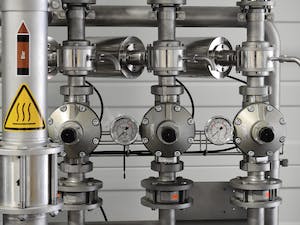What do plumbers do
by siteadmin

Plumbers are experts in installing and repairing pipes used to transport water, chemicals and waste from homes and businesses. Plumbers install plumbing fixtures such as toilets and bathtubs, as well as appliances such as dishwashers.
Before becoming certified, plumbers undergo years of training and apprenticeship. They become adept at reading blueprints and building codes as well as being able to communicate effectively with customers and other trades.
Installation
Plumbers install pipes to supply and remove waste gas and water from homes and businesses. They also install fixtures like bathtubs, sinks and dishwashers. Some plumbers specialize in industrial or commercial pipe systems.
Plumbers must ensure that they can reach all pipes in need of repair before installing a new system. This may require moving furniture, covering the walls, and removing debris. A whole-house repipe can take several days. During this time, all water services will be shut down.
Plumbers are exposed to similar risks regardless of the job they perform. Plumbing service involves a number of risks, including exposure to hazardous chemicals and heavy lifts in tight spaces.
Repair
Plumbers use a variety of tools to repair pipes and drains. They inspect systems in order to identify problems, and determine the best action to take. For instance, they may need to remove clogs from drains, or replace broken parts based on how severe the issue may be.
Leaky pipes are one of the most common plumbing repairs. Plumbers can help with leaks by using sleeves or other home solutions. However, they will need to replace the pipe completely to prevent further damage.
Plumbers are also called in to repair the main waterline connecting your street to your home underground. This task requires more experience and expertise as it involves working with live pipes, as well as potentially dangerous environments such as sewer or septic tanks outlets.
Maintenance
Plumbing specialists use hand tools, power equipment, and testing devices to inspect and repair fixtures like sinks, bathtubs and toilets. They use blueprints and building code to determine the optimal pipe placement, and work closely with architects and construction crews to integrate plumbing seamlessly into a new project.
Plumbers are often called to respond to urgent calls from businesses and homeowners, sometimes within a short time frame. Their job requires fast diagnosis and repair in order to address issues quickly. For example, finding leak sources, adjusting pressure on pipes or clearing away obstructions. Working in tight spaces often requires wearing protective gear, such as hard-hats, to avoid injuries from sharp tools or other hazards.
Customer Service
Plumbers serve customers by installing, inspecting and maintaining pipes that carry water or waste away from homes and business. They may also install plumbing fixtures like bathtubs, sinks and toilets as well as appliances such as washing machines or dishwashers. They will also train apprentices on these systems and inform clients about costs and repair processes while building relationships with customers.
Plumbers are some of the highest-paid professionals in the construction industry. They earn above-average salaries, and they often join labor unions to negotiate their wages and benefits. To become a plumbing professional, you must first complete a trade school or apprenticeship, as well as any licensing requirements that may be required in your jurisdiction. If you want to advance, seek out additional certifications and management opportunities as soon possible. Providing exceptional customer service will help you stand out in this highly competitive field!
Plumbers are experts in installing and repairing pipes used to transport water, chemicals and waste from homes and businesses. Plumbers install plumbing fixtures such as toilets and bathtubs, as well as appliances such as dishwashers. Before becoming certified, plumbers undergo years of training and apprenticeship. They become adept at reading blueprints and building codes as…
